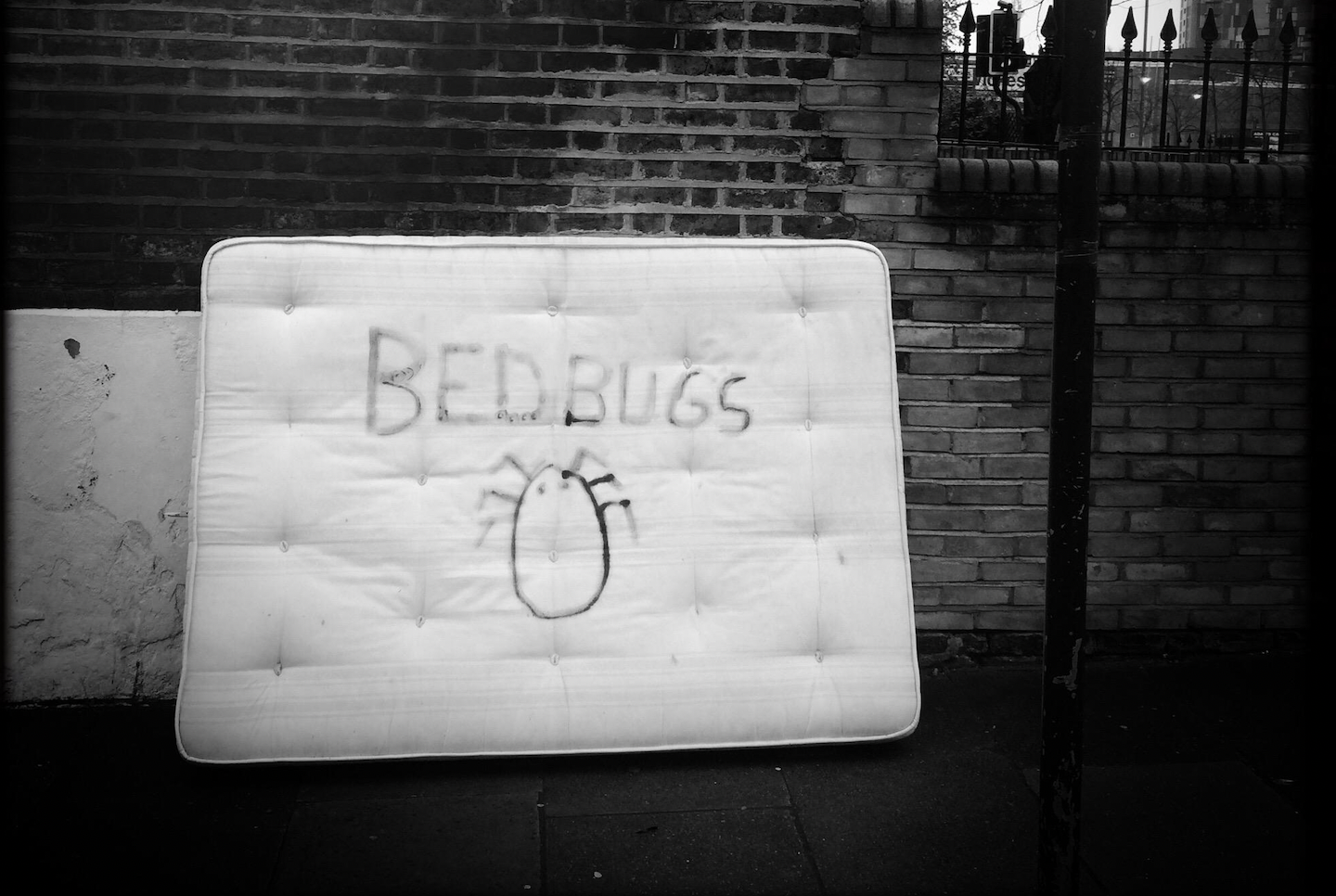Everything you need to know about bedbugs as an increase in numbers is predicted
An insect expert tells us the unseasonably warm weather means bedbugs are likely to be on the increase in the UK, just like in Paris.
There have been reports of a widespread outbreak of bedbugs in Paris, prompting fears that the tiny creepy-crawlies – which are known to hide away in suitcases – will be rapidly multiplying on our shores, too.
Authorities in Paris have dramatically warned that “no-one is safe” from the unwanted bloodsucking critters, and social media videos appear to show the insects crawling over seats on the Paris Metro.
Experts in the UK point out that although we already have bedbugs here and they are found globally, it is likely that, because of the unseasonably warm October weather, they will be on the rise, and certainly the pest control company Rentokil has reported a 65% increase in bedbug infestations from 2022 to 2023.
View this post on Instagram
Professor Mary Cameron, professor of medical entomology at the London School of Hygiene & Tropical Medicine, said that although no academic studies have been done to confirm whether there’s been an increase in bedbugs, there’s certainly a perception of an increase.
“There probably has been a rise in bedbugs, and Paris is the one (incidence that) people are most concerned with at the moment,” she said.
“It’s because the weather has been so mild and we’ve had an extended summer, and most insects like warmth and humidity because then they can reproduce rapidly.
“So I think the weather has extended the season for different insects, including bedbugs.”
In addition, she said there has been more movement of people since Covid, and as bedbugs are known hitchhikers, that will have helped them spread.
“During Covid there would have been a decrease in bedbug infestations,” explains Prof Cameron, “but now people are travelling a lot more and they can carry the bedbugs in their luggage from a hotel room to back home, and also they can be on public transport too. That will all contribute to an increase in bedbugs.”
Here, Prof Cameron explains what we should know about bedbugs…
– What do bedbugs look like?
Prof Cameron said they’re tiny (4-5mm long) and look like squashed apple pips. “They’re reddish-brown when they’re an adult, and they’re the size, shape and colour of an apple pip,” she said, pointing out that the younger, nymphal, stages look like the adults, but are even smaller.
– How can you spot them?
As well as seeing the bugs themselves, they leave faecal spots. Prof Cameron said: “When they have a blood meal, they digest it, and their faeces look like digested blood, which is dark brown or black over time. So you can look for little droplets of dried blood in things like your bedside drawers and around cracks and crevices, the frame of your bed, or seams of mattresses.”
In addition, she said that if you’re staying in a hotel, before you open your suitcase you should look for the tell tale faecal spots by looking under the mattress cover and sheet and looking around the mattress seams and bedside drawers. “If you can’t see any, you can feel safer about opening your suitcase,” she said.
– Do bedbugs just live in beds?
View this post on Instagram
While the bugs do like beds, they can be found during the day in dark crevices all over the room, said Prof Cameron.
“Although they’re called bedbugs, they come into the bed to bite you when it’s dark, but then they scurry away into cracks and crevices within the bedroom, so you wouldn’t find them so much in the bed, you’d probably find them inside bedside cabinets, in cracks and crevices, or behind the headboard or in wardrobes, because they like to be in dark places during the day.
“So, after you’ve got up, it’s unlikely that you’ll see them in your bed unless you’ve got a really bad infestation, and you’ll be aware of it then because you’ll have lots of bites.
“The worst thing is that if you’ve gone to a hotel room, for example, and brought one female back with you, you probably wouldn’t be aware of it until after she’s laid her eggs and all the nymphs have hatched. They’ll then take a blood meal and rapidly multiply, but you’d only be really aware of it when you’ve got a heavy infestation.”
– How long does it take their eggs to hatch?
Prof Cameron said bedbug eggs hatch within a couple of days in a nice environment and “that’s what they’ve got at the moment because it’s hot and humid, which is contributing to their rapid growth within households”, she said.
“The whole lifecycle will take a few weeks, but once you’ve got one pregnant female you get lots of nymphs and a doubling of the population every couple of weeks,” she warns.
– What are the bites like?
People’s reactions to bites vary, said Prof Cameron, explaining that if you have not experienced bedbugs before, you may not react straight away to the antigens in their saliva, but over time you will.
“If you’ve had lots and lots of bites, after a while you stop reacting to them,” she said.
“But most people will react to bedbug bites in a similar way to mosquito bites – they’ll be small, red and itchy.”
However, if you scratch them it can introduce bacteria and you may get a secondary infection.
– Do they transmit disease?
“At the moment it doesn’t appear that they transmit any diseases like mosquitoes do,” Prof Cameron said. “But you don’t want the thought that when you go to bed you’re going to get bitten, and it can cause lack of sleep and anxiety over the long-term.”
– How do you get rid of bedbugs?
View this post on Instagram
One of the worst things is trying to get rid of bedbugs, said Prof Cameron. “They’re really difficult to control compared to other insects as there’s widespread resistance to most insecticides.
“They live in cracks and crevices, so people go round spraying insecticide in their room, but it’s unlikely the bugs will get a lethal dose because they’re hidden away.
“So you really need a professional person to go in to do the control, because it could be that they have to dismantle furniture, go behind skirting boards, and they’ll have better equipment to be able to reach the bedbugs that are hiding.
“And it’s also likely that it’s not going to be a one-fix solution – it will possibly require a professional pest controller to go to your house a couple of times to get rid of them.”
She said that although a lot of councils used to have pest controllers, it is one of the services many have cut back on.
“One of the problems is that if the infestation is low, even a professional pest controller may not be able to detect them until they’ve got to quite a large number, because they may be putting things like sticky traps down, and sticky traps require the bedbugs to go over them, and not many will, and it’s hit and miss where you put them – you can’t cover the whole room with sticky traps.
“There are new lures, different chemicals and odours that bedbugs will respond to, and if you’ve got an efficient trap with these odours then it’s more likely you’ll detect the bedbugs.”
She added: “You probably won’t get any disease from them, but the worst thing is, it’s probably going to cost money to get rid of them.”
The Press Association
Latest posts by The Press Association (see all)
- BBC to air two-part Call The Midwife Christmas special - December 23, 2024
- 6 mind sports to exercise your brain and keep you sharp - December 20, 2024
- Quiz: What classic Christmas food or drink are you? - December 20, 2024
- Leftover turkey and watercress pie - December 20, 2024
- Catherine and William choose family shot for Christmas card photograph - December 19, 2024




















